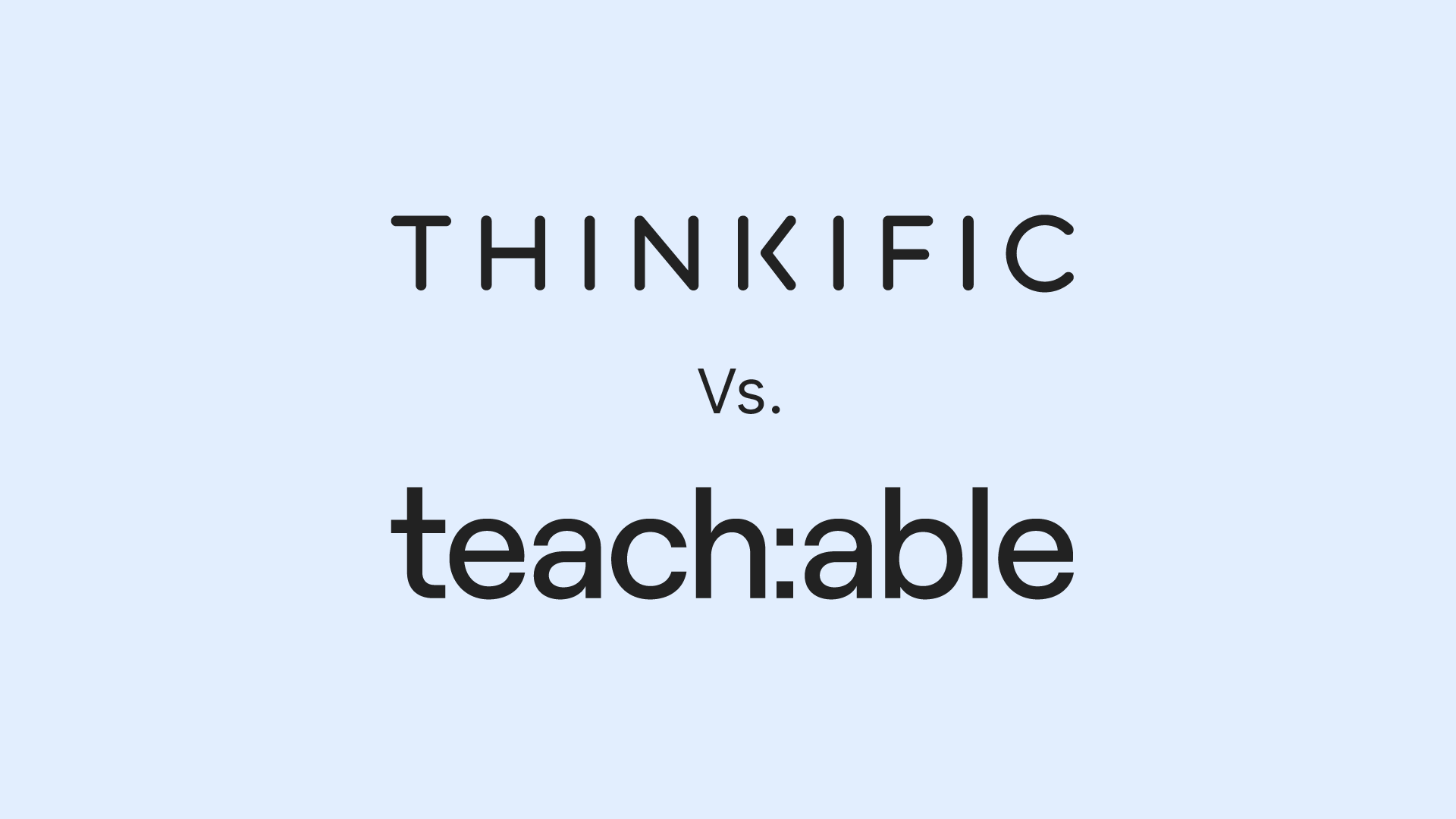Online courses are a great way for people to learn anything from how to make money online to how to start a blog. They're also a great way to earn extra cash during the coronavirus pandemic.
Creating an online course doesn't necessarily require any special skills. You don't even need to know how to code to sell a digital product like an online course. In fact, creating an online course doesn't even require any technical knowledge. All you need is some basic computer skills and a desire to help others learn something new.
Online courses are becoming increasingly popular. In fact, according to Course Report, there are over 10 million active online learners worldwide. If you want to start earning money from home, creating your own online course could be a good idea.
Here are nine reasons why you should create a free online course and an easy way to get it done today.

9+ Reasons to Create an Online Course
- You are loosing customers to your competitors
- You're reading an asset you can sell multiple times
- An online course will help you to scale your business
- You become an authority in your niche
- It helps build your product ladder
- Your time becomes more valuable
- An Online Course can be a valuable upsell
- It gives you an important new income stream
- It's relatively easy to get started with an online course

Design courses like a pro.
ISpring
Create interactive courses and assessments — even with no tech skills.
1. You are loosing customers to your competitors
There are people out there who want to learn from you, or who have problems they need help solving. If you don't already have an online offering to offer them, you can be sure that one of your competitors will soon.
If you don't create your own online course, then you are, effectively, loosing customers who would have otherwise been yours right from under their noses - and you're letting them!
Those potential customers might be people who would have purchased your course if you'd offered one. They can be people who have purchased from you in the past or who are now looking for an item you don't currently offer.
Are you willing to give away customers on a silver platter to your competitors? If not, then start thinking about creating an online course for yourself.
Creating your own online course gives you control over what you teach. You don't have to worry about whether it's relevant to your audience, or whether it matches up with your brand.
2. You're reading an asset you can sell multiple times
The online education market is booming. And there are many ways to make money teaching others about what you know.
Like many digital products, Oonline courses are a great way to make money from home. They allow you to build up your knowledge base without having to spend hours every day studying. In fact, some people even find that they learn better while doing something else, like watching TV, listening to music or playing video games.
But what do you actually teach people? How much does it cost? What happens if you don't deliver?
The answer is simple: Online courses are easy to create, cheap to produce, and highly scalable. Once you've built it, you can use it over and over again.
You can start small, offering just one course to a few friends, family members or colleagues. Or, you could go big and launch a full course library, allowing anyone to buy into your expertise.
And, because online courses are so easily produced, you can scale quickly. If you want to take advantage of the latest trends, you can launch your next course within days, rather than months.
You'll also be able to charge a lot less than the traditional university fees, since you won't need to pay rent, utilities or other overhead costs.

Create professional courses in just a few clicks.
LearnDash
The most powerful learning management system for WordPress
3. An online course help you to scale your business
Creating and selling an online course gives you the opportunity to make money while learning something new.
You can sell your knowledge to others and earn passive income. This way you can start making money without having to spend hours every day working on it. Here are some tips to consider when creating and selling your first online course.
If you want to start making money online, one of the best ways to do it is to create an online course.
There are plenty of reasons why you should consider doing this. For example, there are over 2 billion internet users worldwide, and according to Statista, there are now over 7 million active entrepreneurs.
Universities have also jumped on the online course wagon because that's where the future is leading us towards - online learning.
Many business owners fall into the time for money trap because they don't know how to get out of it. If you think about it, the financial exchange is your customer’s time for your money. You can earn more money by exchanging more of your time for things you value.
However, as we've already explained, once you create your online course, it takes very little of your time to maintain it. You could also sell your course to a lot of people for free, but if you want to make any money from it then you need to invest some time into creating it first.
If you're looking for a way to grow your business, and avoid the time for money trap by starting an online course, then creating and selling one might be the perfect solution.
4. You become an authority in your niche
The idea behind building an online course is to provide value to others. You want to build something that people are willing to pay for because it provides them with a solution to a problem they face.
If you’re able to do that, you’ll attract customers who are looking for solutions to problems they face. And once you have those customers, there are many ways to monetize your efforts.
You don’t necessarily need to start with a full blown course. A freebie might be sufficient to get people interested. But even if you choose to offer a paid version, you’ll still benefit from having an online course.
A lot of people think that launching an online course is a good way to get noticed. After all, if you’ve got a lot of knowledge about your topic, it seems like you must be pretty smart.
So you launch a course, and everyone assumes that you know what you’re talking about. Of course, that’s not always true. People often assume that just because someone teaches a class, he or she must be an expert. But that isn’t always the case.
If you’re offering a course, you’re positioning yourself as an authority on your topic. When people see your name associated with a course, it gives off the impression that you’re knowledgeable. They’ll trust you more, and that increases the likelihood that they’ll buy from you.
5. It helps build your product ladder
A product ladder is useful because it allows you to provide products for new customers who may be testing out your business or have a basic, non urgent need.
Product ladders are great ways to help customers understand how you stack up against competitors. They're also helpful for marketing purposes because it gives you a way to see where you stand relative to your competition.
Al lot of successful businesses have a product ladder – a range of offerings from which they choose their products.
However, as these customers continue consuming more of your products, they eventually become familiar with you and your brand. They believe that you're reliable and trustworthy, and they like what you do.
As they do, they often climb up your product ladder, and spend more time and money on their larger, more expensive offerings.
Short, lower cost and lower-commitment online courses can be a good way to start building your business. Its less risky to start with, especially for people who don't know you, and easier purchases for those who don't want to spend more.
Longer, more costly online courses can also help you develop your product ladder by providing you with additional rungs for people who need or want to spend more time learning or investing in developing their skills and knowledge.

Your website. Your products. Your community.
Podia
Podia is free. And when you grow, it has all the tools you’ll need along the way.
6. Your time becomes more valuable
In today’s economy, people are willing to pay more for what they value most. And one of the best ways to increase your perceived value is to add more rungs to your growth ladder. But how do you go about doing it? You start by creating more opportunities to demonstrate your expertise.
When you create more rungs on your product ladder, you make your own personal time more valuable. As a result, you become able to charge more as an authority figure.
Think about it, with an online course people can now access your expertise online and you are not even there with them. So, for a course that took 6months from your will continue giving your revenue and earn you more respect as an expert in your field.
When people consider you an expert, they are willing to pay more for other parts of your work which means more ROI for your business.
7. An Online Course can be a valuable upsell
Many people are familiar with the concept of upselling. You know it well because it happens every day. When you go shopping, you're often offered extra things you don't necessarily need.
If you're buying a tent, you might be offered a sleeping bag or a camp stove. Or maybe you're ordering a hamburger and you'll be asked whether you'd like fries with that.
Upselling isn't just limited to physical stores; it's common practice online too. When you buy a product or service from a web store, there's usually a chance to add a complementary item to your basket.
So how do you know if it's worth offering an upsell? Well, according to research conducted by eCommerce marketing agency ExactTarget, many customers find it very appealing. In fact, nearly half of shoppers say they would pay more for a product if it came with an added bonus. And almost 70% of consumers surveyed felt that it was important for retailers to offer upsells.
If you're thinking about adding an upsell to your site, here are some tips to help you make sure it works.
8. It gives you an important new income stream
According to Freelance Directory, there are now over 2 million freelance professionals in the United States alone. This number represents a 40% increase since 2016.
While many of us are still trying to figure out what exactly we want to do once the pandemic ends, others are already looking ahead to the next phase of their careers — and that includes finding new ways to make extra cash.
One of the biggest trends we’ve seen lately is the rise of online courses. People are turning to online classes because they offer flexibility, convenience, and affordability. These types of programs allow students to learn at home while earning credit toward their degree.
While it may seem like a luxury during these uncertain times, online education could actually become a necessity if the economy doesn’t improve soon. We recently talked to a few experts to find out whether they think online education will continue to grow in popularity even after the pandemic passes. Here’s what they had to say…
9. It's relatively easy to get started
Making an online course isn't very hard. There are many platforms out there where you can host your courses, such as Udemy, Teachable, Skillshare, etc. These platforms provide great tools and resources to help you build your course. They even offer free trials to see how it works.
You don't need much money either - just $5-$10 per month. And once you've built your course, you can sell it for whatever price you want. So why not try creating your own online course?
Why it's much easier than you think to create your first online course
Creating an online course isn't hard - it just takes a little know-how and some planning. If you've never done it before, you might find the process daunting, but there are plenty of resources out there to help you along the way. Here are five things you'll need to consider before starting your next online course...
1. What topic should I cover?
This is probably the most important question you'll face when creating your first online course. You want to choose something that interests you, but that also fits within your niche. For example, if you work in marketing, then why not start a course about social media marketing?
Or maybe you're interested in writing fiction, so why not write a story based around a character you'd love to meet? There are literally hundreds of topics you could teach on - and each one of them is unique enough to attract different types of learners.
2. Who am I teaching?
The answer to this question will depend on what type of learner you hope to reach. Are you aiming to teach beginners? Intermediate students? Advanced professionals? Maybe you're looking to teach parents how to raise children. Whatever your audience, you'll need to decide whether they need basic information, intermediate knowledge or expert advice.
This will determine what level of detail you include in your course, as well as where you place it. For example, beginner courses tend to focus on providing a broad overview of a subject while intermediate courses go deeper into specific areas. Expert courses usually dive straight into the nitty gritty.
3. How long does my course need to be?
You'll need to plan ahead here because you won't know exactly how long your course will take to complete until you actually begin working on it. However, it's always worth keeping in mind that shorter courses generally appeal better to learners who aren't necessarily looking for a full-blown education.
They're often ideal for those who want to learn something quickly and easily. On the other hand, longer courses are great for anyone who wants to really delve deep into a particular area.

Design courses like a pro.
ISpring
Create interactive courses and assessments — even with no tech skills.
Start creating your first course today
So you want to start making money from home? Well, there are many ways you can do this. You could set up your own blog and sell affiliate products, or you could even make money teaching others how to make money. But what if I told you there is another way?
I'm sure you've heard of courses like Udemy, Skillshare, CreativeLive, Lynda, and others — they are platforms where anyone can upload video tutorials and sell access to those videos. They don't necessarily require you to have any special skills; you just need to record yourself teaching something and then sell access to that video.
But there's another way to do this, too. You could start making short videos about topics that interest you, like cooking, photography, or personal development. Then, once you've built up a following around those videos, you can turn them into paid courses.







